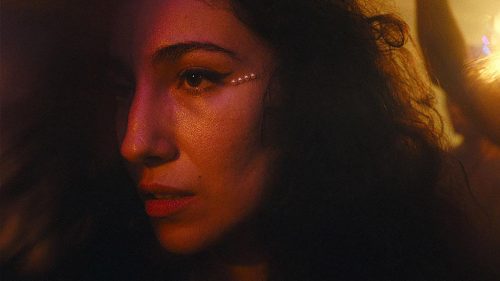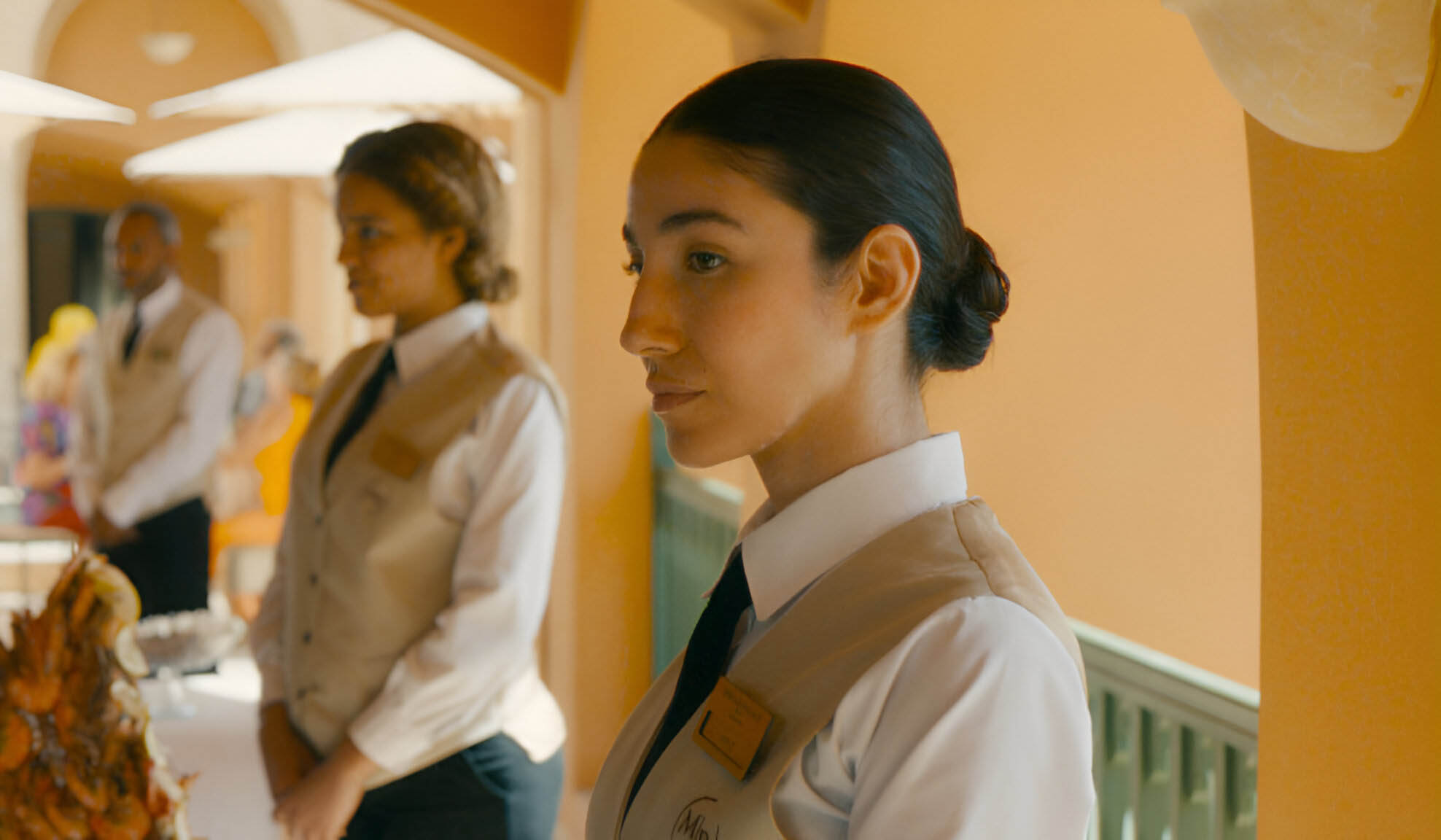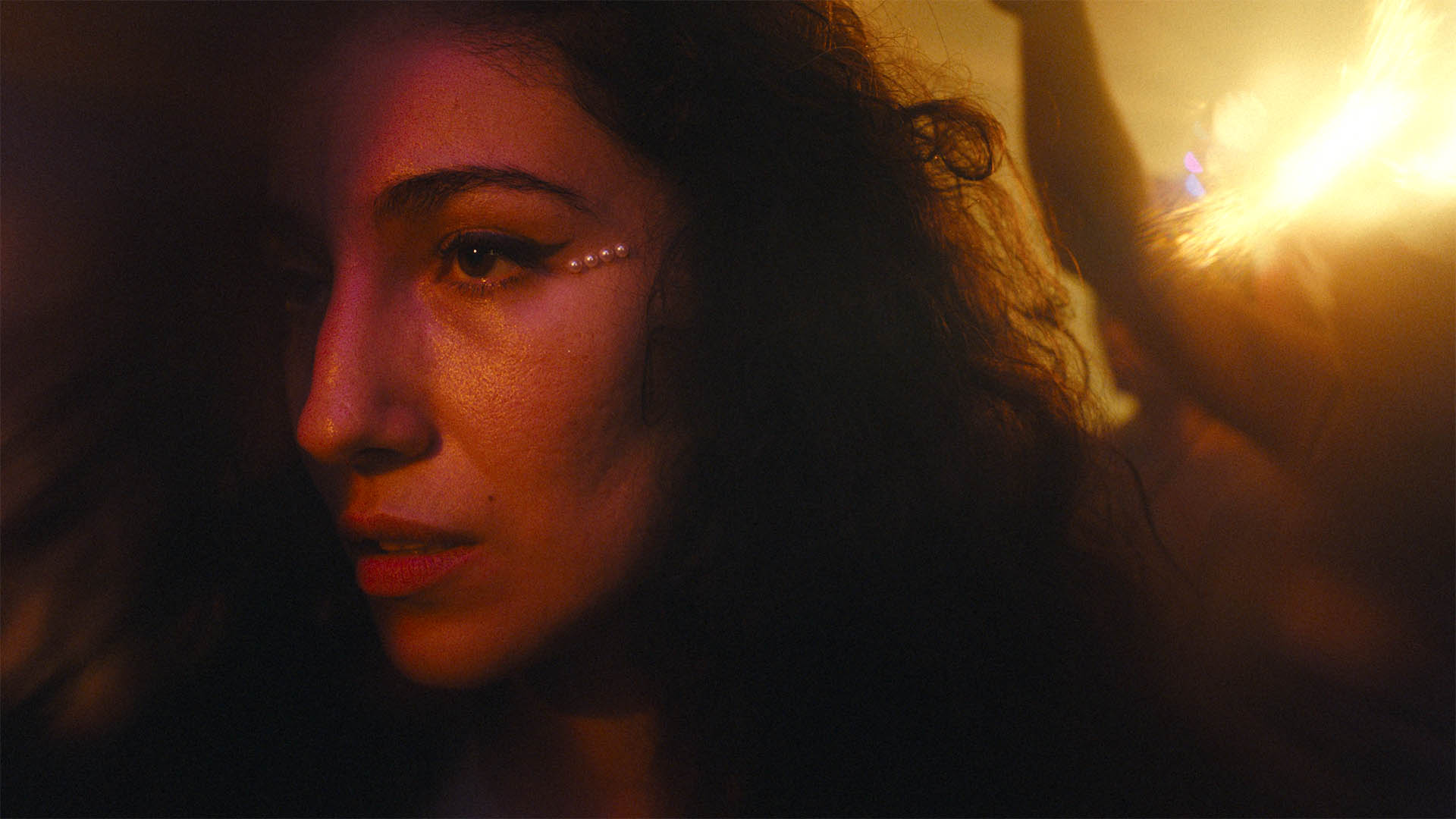
After making his debut in Orizzonti in 2019 with the award-winning A Son, Mehdi Barsaoui returns to Venice with Aïcha, a story of extreme female freedom and emancipation that leads to a much-needed reflection on the question of identity.
Mehdi Barsaoui is a Tunisian filmmaker known for his clever analysis of his country’s social and cultural fabric. Born in Tunis in 1984, Barsaoui authored several short films before releasing his first feature, A Son, in 2019. His debut film earned international recognition, including an award at the Venice Film Festival and at the Marrakesh Film Festival. This year, Mehdi Barsaoui is in Venice with Aïcha, participating in the Orizzonti section. The film proves once more the filmmaker’s ability to explore complex, current themes using powerful, captivating narration.
In both A Son and Aïcha, the question of identity is central. Why is it so dear to you?
What I want to show in my films is the current situation in the Arab world, and Tunisia in particular, to try to understand what we are. Tunisia is a cultural crossroads, and as often happens in these kind of melting pots, the question of identity is one we are forced to face. The Arab Spring of 2011 and women’s wishes for freedom and emancipation it engendered made the identity issue even more urgent. This is also a film on emancipation, in particular, liberation from the social, religious, and familial onuses that burden women’s condition.

Aya is a young woman approaching her thirties who lives in Tozeur, a small town in southern Tunisia, with no clear future prospects. One day, while on her way to work, she is involved in a car accident. As the sole survivor, she decides to seize the opportunity to disappear an...
In Aïcha, you worked on such universal topics as individual freedom and the weight of tradition. How do you wish your film will impact the general public, both in Tunisia and internationally?
The question I would like to answer is: how can we live freely and not worry about what may weigh us down? In our Arab culture, I feel like the weight we carry is heavier than in any other culture, although I must admit I never lived in any other country, bar a short period in Italy. To get rid of this weight, my protagonist decides to get rid of everything, from all sort of guilt about her parents to her own guilt for being alive. She undertakes a journey towards liberation, but never resorts to selfishness or self-centeredness. In our Arab societies, some figures are idolized, like parents, who take a dominant position in familial hierarchies.
In religion, the status of the father and the mother is so high that it is said that without their blessing, there won’t be a place for you in heaven. What my character imposes on her parents, which is her death, is the ultimate, most horrible act for a parent, an act of immeasurable rebellion. In life, this woman couldn’t find the courage to emancipate, so she does so via the symbol of death, and her journey towards a new identity allows her to finally emancipate from her parents in real life. To renounce one’s identity, the identity our parents gave us, is the greatest insult we can hurl at them. I think it was important to break away from these notions, because the pressure we feel, in the Arab world, to please our parents all the time is just too burdensome.

Aya’s character is at the centre of your story. How effectively did you work with the protagonist actress to capture the complexity and the strength of this character, all while reflecting on the challenges she faces?
I started auditioning in January 2023, with principal photography planned for November. The casting director and I asked prospective actresses to improvise, rather than read from a script. They had to pretend they were dead, being investigated by police, and prove their identity. This helped me test their imagination, their freedom, and their manipulation abilities. I appreciated Fatma Sfar’s fragility and her ability to immerse in every situation. She blends naturally, and can be, at once, fair, kind, or just the opposite. Physically, she is not what I had in mind while I was writing the script, but thanks to her acting skills and intelligence she was able to give life to every feature of her character.
As a filmmaker, what is the most important message you want your audience to take home after seeing your work?
I would like to stir up some sort of awareness: what if we stopped meddling in everyone else’s life? What if we gave them the chance to be free? More generally, I would love it if we could speak freely of what we wish for ourselves, criticize our governments and institutions, and have the means to do so. Thirteen years ago, during the Arab Spring, we lived the illusion of very positive perspectives, of change in paradigm in Tunisia and in the Arab world in general. Then, suddenly, terrorism, COVID, and war put a stop to activism and society reverted to individualism.

This is your second participation in the Orizzonti section at the Venice Film Festival. How do you feel about this recognition?
As a filmmaker, being invited to the Venice Film Festival is incredible. When I look at the names of other directors in the line-up I feel extremely privileged and proud for my film to enjoy such visibility and become a topic of debate. I am looking forward to sharing it with the audience and I hope being here will bring the same good fortune I had with my earlier film, A Son.